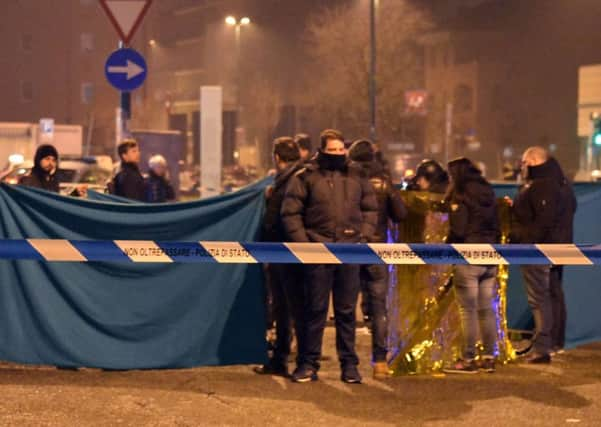Signs of hope, despite the terrible atrocities


All year I have written about big problems at home and abroad and about failures to tackle some of them.
But on Christmas Eve it is better to look for the positives.
Advertisement
Hide AdAdvertisement
Hide AdIslamic extremism has been a threat to the western world for almost 30 years, since the Salman Rushdie affair (my own political journey from left to right began around then, and in part was triggered by the abject failure of the liberal-left to stand up to that disgraceful manifestation of Islamo fascism).
But while the threat to innocent life from Muslim fanatics is real, and perhaps growing, the amount of damage that they seem to be able to inflict is mercifully small.
Driving lorries into crowds are desperate measures by deeply disturbed people, who still seem to be few in number.
Europe has a population of more than 500 million people and the number of people willing to end their lives in such attacks seems to be tiny. If it wasn’t, there would be dozens of massacres a day.
Advertisement
Hide AdAdvertisement
Hide AdThe total number of people killed on the continent by Islamists since the Madrid bombs in 2004 is still measured in the hundreds. Scores of thousands of people have died on the roads in that time.
There is a danger from fanatical groups getting their hands on weapons of mass destruction. After September 11, I was deeply despondent about the prospect of them getting access to a nuclear bomb. After all, anyone who seeks to kill 20,000+ in the Twin Towers (they killed a fraction of that number) would murder hundreds of thousands if they could.
But experts seem to think that them getting access to a nuclear bomb is still a long way off, if ever.
In the meantime, we should have decades to think about how to reduce the allure of extremism, particularly to vulnerable people.
Advertisement
Hide AdAdvertisement
Hide AdThis week Doug Beattie MC MLA wrote an article in the News Letter about the way in which British Army training improved radically during the Troubles, as it began to understand better how not to over-react to the terrorist threat.
There have been some developments in recent years which have caused me to wonder if human progress is an illusion, as some philosophers say. And yet there is clear progress in some areas, even in road deaths which I will write about at the end of the year. But tragedy yesterday showed how much there is still to do on the roads.
• Ben Lowry (@BenLowry2) is News Letter deputy editor